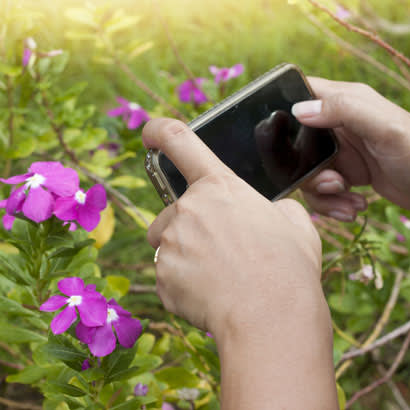
Right now, many park and recreation professionals are trying to find ways to provide safe, educational and fun ways for people to enjoy their parks. As kids head back to school — many of them to a virtual-only format — a self-paced, outdoor STEM activity could be a welcome relief from hours spent in front of a screen. A virtual BioBlitz is a great way to engage your community in an activity that is educational, fun and provides a community benefit! By using the mobile app, iNaturalist, people in your community can discover and track plants and animals — all while practicing physical distancing.
This September, we are hosting a month-long Parks for Pollinators BioBlitz to raise awareness and community involvement in the pollinator crisis by working with local parks and recreation agencies and like-minded organizations. NRPA and The Scotts Miracle-Gro Foundation are challenging local parks to get involved and host a pollinator BioBlitz during the month while keeping safety top of mind.
Here are some tips for hosting a BioBlitz event that keeps COVID-19 restrictions in mind. Please remember to always follow all local ordinances and to work with your local public health officials. NRPA has compiled a list of resources for reopening and recovery plans that can be found here.
1. Go Big! To ensure you provide a space that is large enough for people to get outside safely, consider setting the boundaries of your BioBlitz to include your entire city, town or county. By doing so, you can include all your parks and open spaces as places where people can discover the pollinators close to them. This can also give you a better idea of the plants and animals that reside in all your open spaces
2. A Month-Long Celebration! You can host a Parks for Pollinator BioBlitz any time during September, so why not give your community the entire month to go explore your parks' biodiversity? Set your campaign length to be the entire month of September and encourage people to visit multiple parks and see what they find.
3. Connecting Virtually! Just because you can’t host events doesn’t mean you can’t connect! Try creating a virtual campaign to engage your community. You could create a Facebook group where participants can share information and where group owners can host Facebook live video. You can also encourage friendly competition (iNaturalist has a leaderboard for projects) through daily and weekly challenges.
4. Share Knowledge! Share electronic resources so participants can continue to learn about pollinators and biodiversity. Examples could be:
- Field guides for local or regional flora and fauna
- Information on education and resources from your agency
- Daily/weekly challenges or interesting facts
5. Get outside! Encourage your community to get outside by in a safe and respectful manner that follows your state, local and regional restrictions related to COVID-19.
6. Talk about what you found! Wrap up your BioBlitz by sharing what your community found virtually. You can also use the wrap-up time to find out what else they want to learn more about or how else they can engage with your agency to help advance pollinator protection and biodiversity.
BioBlitzes can be a great way to get outside to enjoy nature and learn more about the plants and animals that live nearby. We encourage you to join us virtually this year for the Parks for Pollinators BioBlitz! Please visit our webpage for resources on how to set up and run your own BioBlitz project.
The Parks for Pollinators campaign, hosted through a partnership between the National Recreation and Park Association (NRPA) and The ScottsMiracle-Gro Foundation, aims to raise public awareness of the pollinator crisis and encourage local action through public parks and recreation. NRPA and The ScottsMiracle-Gro Foundation believe parks play a key role in protecting and preserving pollinators and their habitats. Together, as part of the ScottsMiracle-Gro’s GroMoreGood initiative, they are working to educate more children, families and communities about the importance of pollinators and what people can do to help.
Michele White, CAE, IOM, is NRPA’s Conservation Program Manager.

